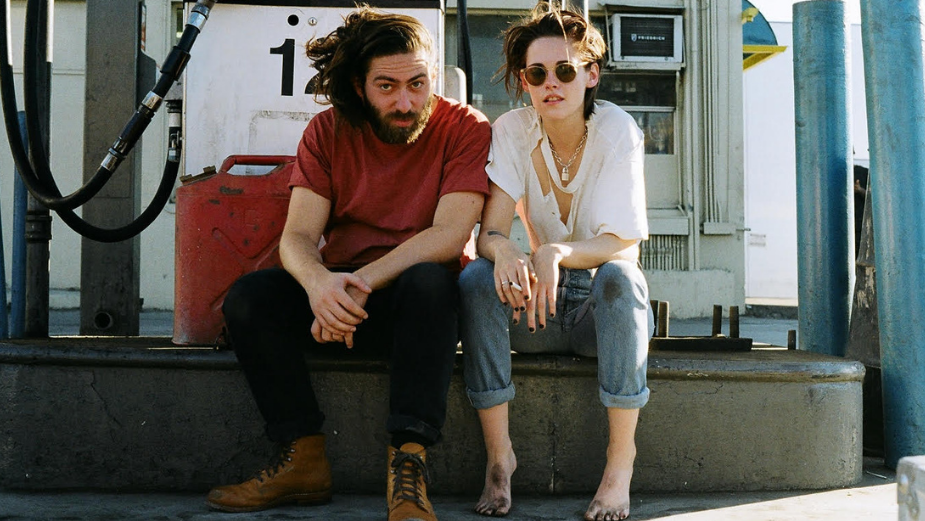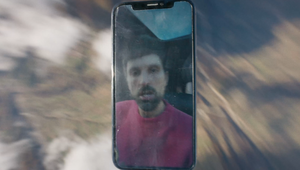
The Directors: François Rousselet on Leaving a Lasting Impression

Studio RM, the creative studio specialising in colour grading and post production across film, print, and digital, is partnering with Little Black Book to sponsor The Directors channel. It’s a space for celebrating directors who create aesthetically beautiful and nuanced imagery, the creative potential of technology, and diving into the trends in contemporary culture which these visionary minds so often spark.
In this series, we’ll be highlighting directors who have a distinctive creative voice, and who are championing new and exciting visual styles through fashion, music, and culture. The latest instalment spotlights multifaceted creative force and music video maverick, Francois Rousselet.
Perhaps best known for his music video collaborations with The Rolling Stones, Kanye West, Madonna and Jack White, the prolific Parisian director also lends his creativity to the world of commercials. Having produced films for iconic campaigns for Heineken, Diesel and Jean Paul Gauteir, Francois most recently directed an award-winning Just Eat spot, featuring Snoop Dogg and the inescapable “Did Somebody Say” earworm.
In this interview LBB’s April Summers learns all about the era that influenced Francois the most, his thoughts on the blurred lines between film and gaming, and how he adapts to different attitudes and aesthetics.
Name: Francois Rousselet
Location: Paris, France
Repped by: Riff Raff Films
LBB> What were your influences growing up and how did they help shape your creative voice?
Francois> Growing up, I was watching a lot of 80's and 90’s television, as well as reading lots of comic books. I don’t mean DC or Marvel, more European comics and graphic novels; Tintin, RanXerox and Snowpiercer. I began replicating entire pages from these comics, before drawing my own comics in a school journal. I thought I wanted to be a comic book artist but then I started learning filmmaking through drawing: framing and designing a shot with characters and telling a story through visuals.
The 80s and 90s saw the advent of music videos and the golden age of advertising which both contributed to a big part of my desire to become a filmmaker. Before the internet existed, I was recording music videos on VHS and collecting them. Adverts and music videos by Jonathan Glazer, David Fincher and Frank Budgen made a big impression on me. Although I never tried to chase any trends, I do look back in the rear mirror at the masters!
LBB> Many of your films channel a bold, punk-rock attitude; what work do you feel shows what you do best? Are there certain visual factors that you could pinpoint as a signature for you?
Francois> It’s hard to define my signature style as I’m more into the ‘impression’ of a film, rather than the ‘emotion.’ For example, I like the attitude of Trainspotting because it is the full package: from the movie poster to the film and its soundtrack. The metteur-en-scene in me focuses on not only the attitude of a film but the characters involved.
When it comes to music videos, my job is to encapsulate a good performer with a good concept and fresh ideas. For the Rolling Stones ‘Ride ´em on Down’ music video, I worked around Kristen Stewart because Mick Jagger only wanted me to do it if we had her. We felt the same about what she could bring to the music video by driving around, just being herself. She was the core focus.
It is interesting for me to work across all aspects of a film, like when I did the Snoop Dogg Just Eat spot, I was emulating 70s and Blaxploitation film posters. The Diesel ‘Go with the Flow’ spot and Rolling Stones video illustrates how I work around actors, models and performers.
I wrote the Diesel spot from scratch, with the dancer waking up on an empty bridge - sort of poetically wasted - and had fun creating stories and context for each of the beautifully flawed models and performers. It’s like a pop music video with a Fellini-esque vibe. I was lucky to be able to use my original choice of music - the Edith Piaf song - to add a different type of attitude to the film.
LBB> How do you use things like colour and grade to accentuate your vision?
Francois> Talking about characters, colour is one way to make an impression. Take David Fincher’s ‘Seven’, the rainy, moody, noir-type feel ups the ante and sense of misery of the setting - a city that doesn't seem like a nice place to live - the colours illustrate all of that.
Again, comic books have influenced how I use colour. I like to use colour to chapter a film, bringing a look to a specific scene. Although it is a great tool, to say it’s only grade and photography is a misconception. The palette mostly comes from what’s in the picture, such as the set, wardrobe and weather.
LBB> How important is the role of colour and grade in the overall look and feel of a film?
Francois> Colour grading is such a nice step in the journey. It is at this stage that you have your edit locked, so you can breathe, and enjoy the pure aesthetic of your film. At the grading session I may make adjustments but I am not really searching for a complete look. As with recording music, colours need contrast and adjustment in the mixing too, especially when changing the look throughout a film. I actually don't look at the grading, it comes on camera working with the DP, Wardrobe Stylist, Production Designer, which is why I like working in a studio to create the total look.
LBB> What insights can you draw from contemporary culture that you feel are going to shape the future of film?
Francois> Video games to me are going to change the way we make films. They are crazy realistic and complex, and the technology is now used in cinema too, as seen in the use of Unreal Engine in Disney’s The Mandalorian. The problem at the moment is some games try to imitate cinema, while they should instead be exploring their infinite medium and what cinema can’t do. If video games do not continue to influence cinema, I believe games will start to channel a more cinematic, immersive feel.
LBB> What are you most excited about in the world of film craft in 2022 and beyond?
Francois> Less sequels and more original pieces. We have passed that period of recycling everything. I feel 2022 and beyond is about bringing fresh new stories to the future. I will still go see Jurassic Park Dominion but I’m more excited about original movies like The Northman.













